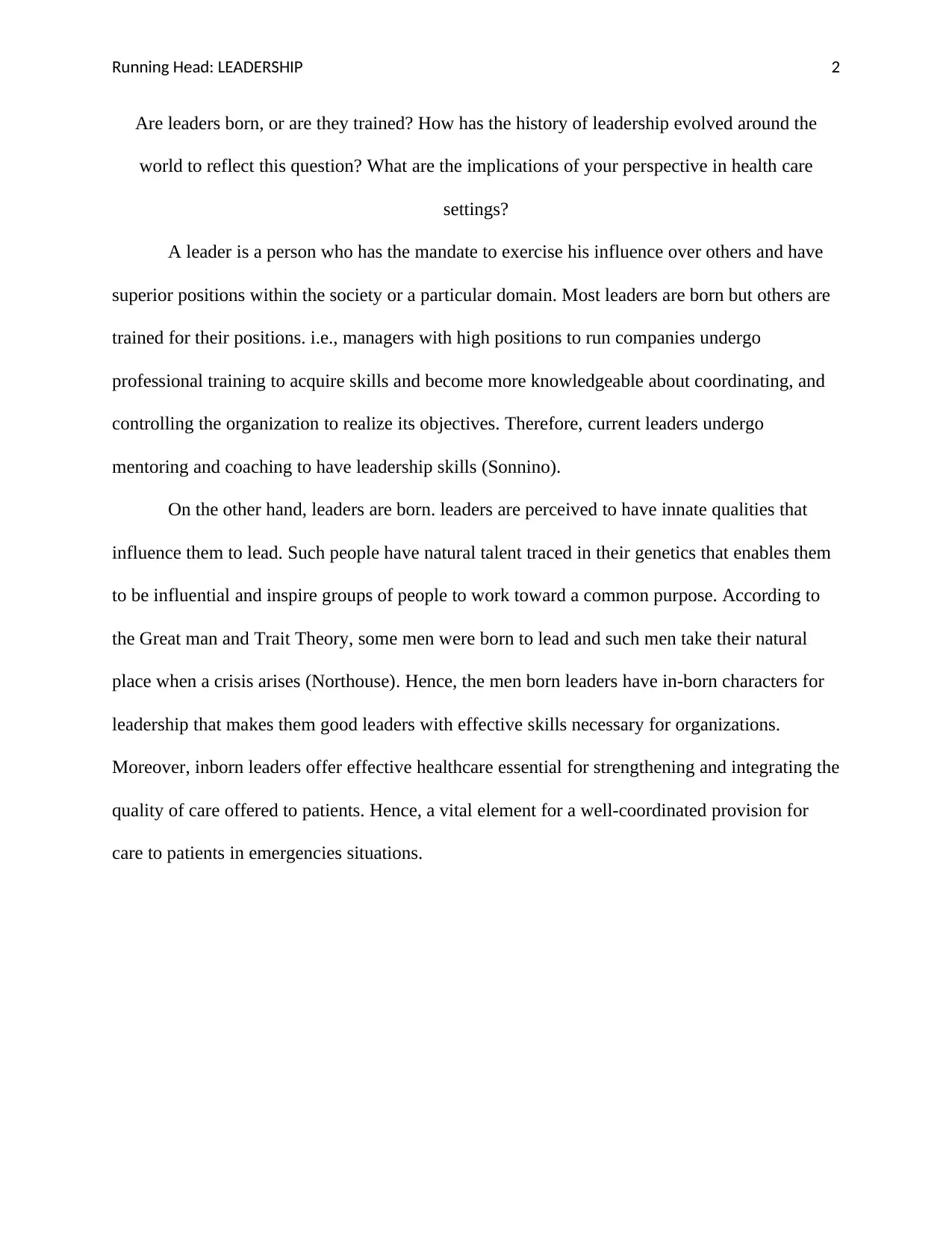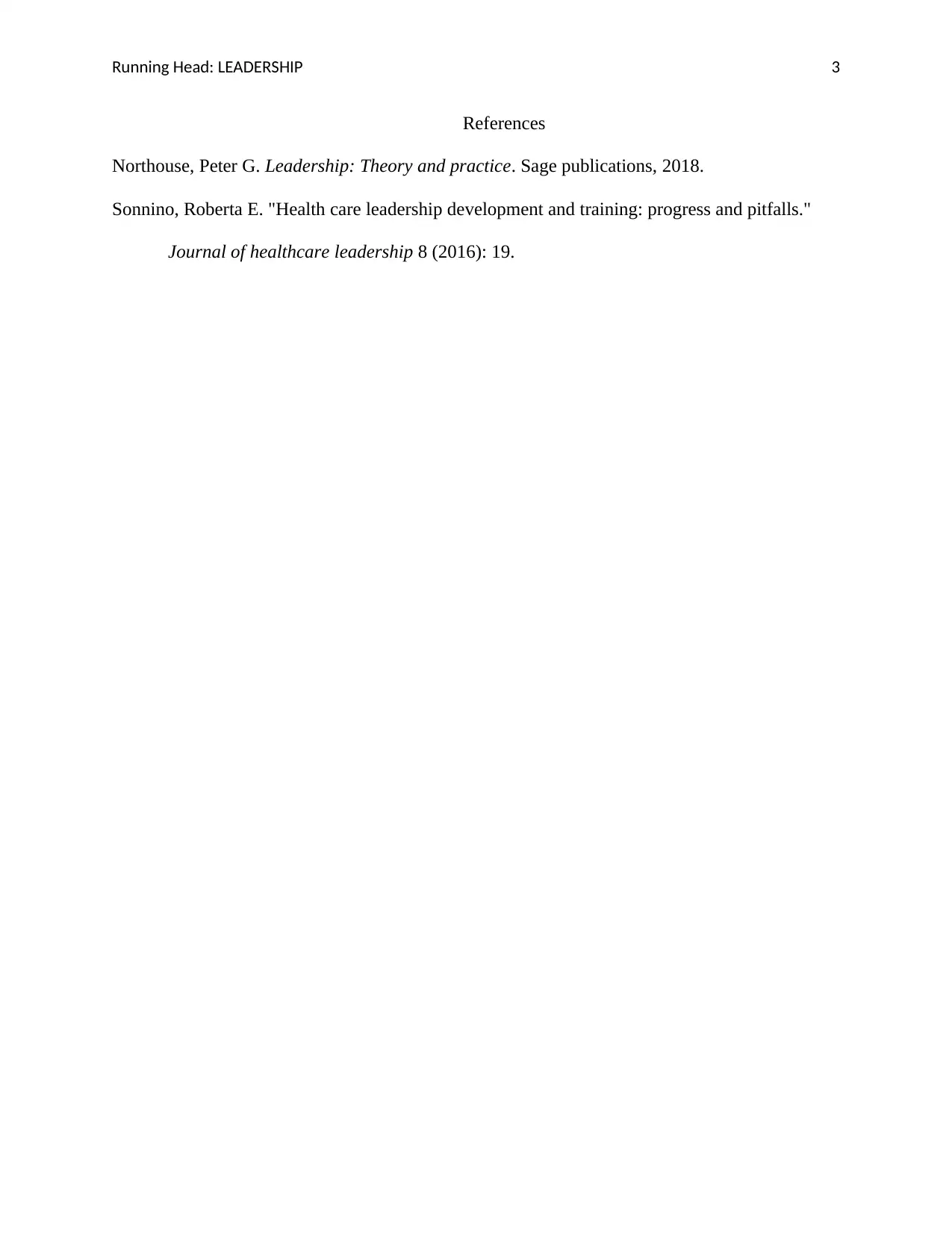Leadership: Exploring the Born vs. Trained Debate in Healthcare
VerifiedAdded on 2023/03/20
|3
|329
|48
Report
AI Summary
This report examines the ongoing debate regarding whether leaders are born with innate qualities or are developed through training and experience. The author explores this question within the context of healthcare, discussing the implications of each perspective. The report references the Great Man and Trait Theory, emphasizing the idea that some individuals possess inherent leadership characteristics. It also discusses the importance of training and development, particularly in healthcare settings, to ensure effective coordination and patient care. The report highlights the significance of both natural leadership abilities and acquired skills in achieving positive outcomes in healthcare environments. References are provided to support the arguments presented.
1 out of 3










![[object Object]](/_next/static/media/star-bottom.7253800d.svg)